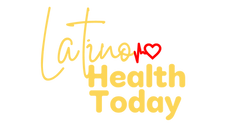Essential Supplements for Men and Women for Optimal Health
- Sylvia Klinger, DBA, MS, RDN, CPT
- Jan 30
- 4 min read
Updated: Feb 7
By Sylvia Klinger, DBA, MS, RDN, CPT
Hispanic & Multicultural Nutrition Communications, LLC

Maintaining optimal health can be challenging in today's fast-paced world. While a balanced diet should ideally provide all the nutrients your body needs, supplements can fill nutritional gaps and support overall wellness. Here is a comprehensive guide to the top supplements for men and women, including daily recommendations for adults.
Essential Supplements for Both Men and Women
Multivitamin
Why It’s Important: Multivitamins act as a safety net, ensuring you get essential nutrients that may be lacking in your diet.
Recommended Daily Dosage: Follow the dosage instructions on the product label, typically one tablet or capsule per day.
Vitamin D
Why It’s Important: Vital for bone health, immune function, and mood regulation.
Recommended Daily Dosage: 600-800 IU for most adults; up to 2,000 IU may be needed, especially in areas with limited sunlight.
Omega-3 Fatty Acids (Fish Oil)
Why It’s Important: Supports heart, brain, eye health, and joint health.
Recommended Daily Dosage: 250-500 mg of EPA and DHA combined.
Probiotics
Why It’s Important: Promotes gut health, improves digestion, and supports immunity.
Recommended Daily Dosage: 1-10 billion CFUs per day, depending on the strain and purpose.
Magnesium
Why It’s Important: Aids in muscle function, sleep quality, and energy production.
Recommended Daily Dosage: 310-420 mg, depending on age and gender.
Supplements Specifically for Men
Zinc
Why It’s Important: Supports testosterone production, immune health, and muscle recovery.
Recommended Daily Dosage: 11 mg.
Creatine
Why It’s Important: Enhances strength, muscle mass, and exercise performance.
Recommended Daily Dosage: 3-5 grams.
Saw Palmetto
Why It’s Important: Supports prostate health and hormonal balance.
Recommended Daily Dosage: 160-320 mg of standardized extract.
Supplements Specifically for Women
Iron
Why It’s Important: Prevents anemia, especially important for menstruating women.
Recommended Daily Dosage: 18 mg for premenopausal women; 8 mg for postmenopausal women.
Calcium
Why It’s Important: Essential for bone health and reducing the risk of osteoporosis.
Recommended Daily Dosage: 1,000-1,200 mg.
Folate (Folic Acid)
Why It’s Important: It is crucial for women of childbearing age to prevent neural tube defects during pregnancy.
Recommended Daily Dosage: 400-600 mcg.
Additional Recommendations
Protein Powder: Useful for both men and women to meet daily protein needs, especially for active individuals. It can be inexpensively obtained from powdered milk, soy milk, and protein powders. Aim for 20-30 grams per serving.
Coenzyme Q10 (CoQ10) supports heart health and energy production. The recommended dose is 100-200 mg per day.
Collagen: Promotes skin, hair, and joint health. It can be found in fruits rich in vitamin C, such as citrus and strawberries, as well as in soy. Soy contains multiple compounds that enhance skin appearance, particularly isoflavones. A growing body of evidence suggests that soy isoflavones can help combat the effects of skin aging, potentially among both pre and post-menopausal women. Reference: Rzepecki AK, Murase JE, Juran R, Fabi SG, McLellan BN. Estrogen-deficient skin: The role of topical therapy. Int J Womens Dermatol. 2019 Mar 15;5(2):85-90. doi: 10.1016/j.ijwd.2019.01.001. PMID: 30997378; PMCID: PMC6451761.
Recommended dose: 5-10 grams daily for collagen powders and 25 grams soy protein per day.
Safety and Consultation
Before starting any supplement, consult with a healthcare provider to address your specific needs and avoid potential medication interactions. Opt for high-quality brands that undergo third-party testing to ensure purity and potency.
Final Thoughts
While supplements can play a vital role in enhancing health, they are not a substitute for a nutritious diet and a healthy lifestyle. Focus on consuming a variety of whole foods, staying physically active, and prioritizing sleep for optimal wellness. By combining these habits with the right supplements, you can support your body’s needs and live a healthier life.
Here are a couple of my favorite healthy recipes:

Black Bean & Quinoa Salad
Salad
1 cup dry quinoa, rinsed
1 red bell pepper, seeded and diced
1 cup corn kernels, fresh, frozen or canned, rinsed and drained
½ red onion, chopped
1 cup cherry tomatoes, sliced
½ cup cilantro, chopped
1 (15 oz) canned black beans, rinsed and drained
½ avocado, sliced
Dressing
2 cups cilantro
1 garlic clove
½ cup fresh lime juice
2 teaspoons honey
½ teaspoon ground cumin
½ cup extra virgin olive oil
½ cup plain Greek yogurt
Preparation
Add 1-1/2 water and the uncooked quinoa in a medium saucepan. Bring to a boil, cover, and simmer for 10 minutes or until most water is absorbed. Remove from heat and let sit for 5 or 10 minutes—fluff with a fork and let cool.
Meanwhile, add all the dressing ingredients to a blender and blend for 30 seconds or until creamy. Set aside.
Gently fold the prepared quinoa with red peppers, corn, onion, tomatoes, cilantro, and black beans in a medium-sized bowl. Gently fold in the dressing and top with avocado slices/
Serves: 6 servings
Green smoothie

2.5 big handfuls/cups of spinach
2 bananas
3 tablespoons peanut butter
1-1/2 cups soy milk
1/2 cup ice cubes
Blend and enjoy!
Sylvia Klinger, DBA, MS, RDN: global nutrition communicator, award-winning author, and culinary consultant, providing compassionate health & nutrition services to underserved communities worldwide.












Comments